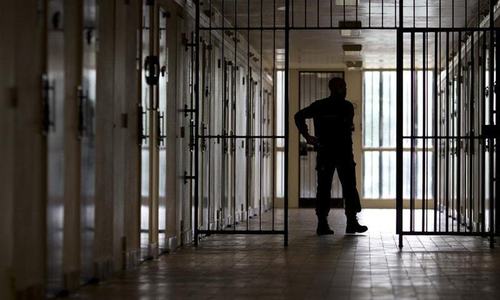PESHAWAR: The Peshawar High Court on Tuesday turned down the petition of a Chinese private company to allow the excavation of sand and gravel from the bed of the Kunhar River for the construction activities of the Suki Kinari hydropower project in Manshera district.
A bench consisting of Chief Justice Qaiser Rashid Khan and Justice Ijaz Anwar directed the petitioner, Jiuzhou Hengton Machinery & Engineering Limited, to search for an alternate place for river bed mining and inform the Khyber Pakhtunkhwa Environmental Protection Agency and mines department about it.
It declared that once an alternative place was identified, the EPA should examine whether the excavation of sand and gravel from there would have any negative environmental impact or not.
Few weeks ago, Chief Justice Qaiser Rashid Khan, while heading the Green Bench dealing with environment-related cases, had taken exception to encroachments along major rivers in the province, including Swat, Kunhar, Chitral and other rivers, and had ordered the removal of all such encroachments.
Chinese firm seeks relief from ban for Suki Kinari power project
The bench had also placed a ban on such excavations.
During the last week hearing, the administrative officers of Malakand and Hazara regions had informed the court that they had cancelled all leases earlier given for the extraction of sand and gravel from river beds.
Additional advocate general Syed Sikandar Hayat Shah, an additional director of mines department and the director general of EPA appeared before the bench. The counsel for petitioner were also in attendance.
The Chinese company, which is part of the construction of the Suki Kinari hydropower project, commonly called as Suki Kinari Dam, requested the court to relax the river bed mining ban for the ongoing construction work saying the dam on the Kunhar River is of immense national importance and will generate 870 megawatts electricity.
The bench inquired whether environmental degradation was not an issue of national importance as it also had impact on the country.
It observed that excavations in rivers caused degradation of watercourses and had negative environmental impact.
The lawyers said the imposition of that ban had brought work on the project to a halt.
They added that due to the ban, the relevant material had to be transported from faraway places to the damage of the roads leading to the project site.
However, the bench observed that roads could be repaired and reconstructed, but it couldn’t allow the degradation of rivers for construction activities.
The lawyers contended that 60 per cent of the work had been completed and the unavailability of the required material would delay the completion of work. They contended that under the relevant rules, relaxation could be given for excavations if the project was of great national importance.
The counsel added that the project in question would help minimise electricity shortfall in the country.
During hearing, the chief justice observed that unfortunately, the environmental issues had been given least importance in the country.
He added that parks had been converted into commercial plazas without realising how much negative impact that construction activities caused to the environment.
The bench observed that it couldn’t allow the degradation of rivers, so the petitioner should search for any alternative location for construction purpose by informing the EPA about it.
Published in Dawn, September 22nd, 2021















































Dear visitor, the comments section is undergoing an overhaul and will return soon.